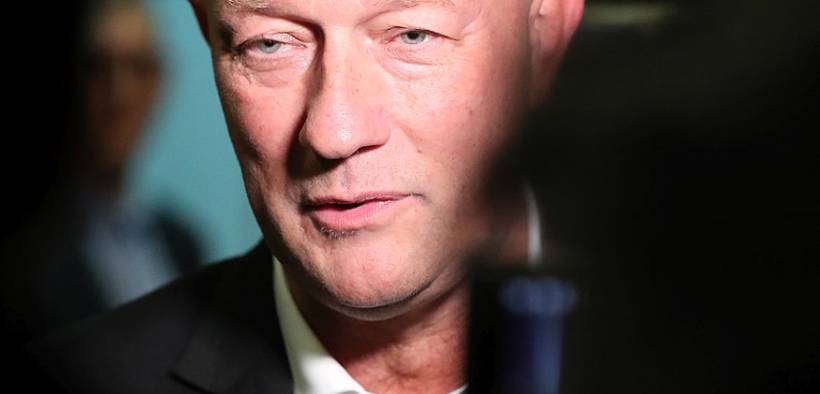Coalition Between Far-Right and Liberal German Parties Devolves into Political Crisis

In alignment with the broader global trend, mainstream German political parties are struggling to maintain support amid the rise of ‘populist’ movements on both the left and right.
A long-standing taboo among mainstream German parties was broken in Thuringia on Wednesday after a new state premier was elected with the support of the far-right Alternative for Germany (AfD).
The news that Thomas Kemmerich of the free-market liberal Free Democratic Party (FDP) was elected to the position after the AfD supported him over their own candidate sent shockwaves through German politics and has already resulted in the resignation of the newly elected FDP governor.
While Kemmerich denies any collusion with the FDP, many called in to question why he accepted the support and was pictured shaking hands with local AFD leader Björn Höcke.
The Democratic socialist party, The Left, received the largest number of votes in the local election, and many suggested that the deal was closed to exclude the left-wing party from once again governing the state.
Chancellor Angela Merkel even weighed in on the local election after protests erupted. Merkel called for the new government to dissolve and said, “It was a bad day for democracy… This election of a state premier broke with a core conviction of the CDU and myself, namely that no majorities should be won with the help of the AfD.”
Fractured Germany
Mainstream German political parties have struggled to mainstream support in response to ‘populist’ movements both on the left and right. In eastern parts of the country, like Thuringia, the AfD has managed to gain unprecedented support for a far-right political party in post-WWII Germany.
Previously, Thuringia was a CDU stronghold, but the rise of The Left and AfD has left Merkel’s party floundering.
Merkel already announced in 2018 that she would not seek reelection during national elections in 2021. Merkel has already abdicated her role as head of her party while remaining Chancellor until 2021. Annegret Kramp-Karrenbauer has since taken over as Chairwoman of the CDU, but recent election results have not looked good for the center-right party.
In addition to The Left, the Greens have also been pulling off support from traditional parties, and they had a particularly good outing in the 2019 European elections enjoying a 10-seat gain and holding 21 out Germany 96 seats in the European Parliament.
With the 2021 elections fast approaching, the CDU has been scrambling to find answers and the link-up between another traditional party and the AfD has caused much concern in Germany.
Who will power serve?
Former leader of Thuringia, The Left’s Bodo Ramelow, shared a chilling image on Twitter comparing the handshake between the local leaders of AfD and the FDP with a picture of Adolf Hitler shaking hands with then-president of Germany Paul von Hindenburg.
The move by the liberal FDP raises a bigger question both within Germany and worldwide as to what side the center will pick in an increasingly fractured political system with rising tides on both ends.
For the most part, many countries with multi-party systems have held off on collaborating with far-right parties, but many of these nationalist parties are beginning to make gains that traditional parties find hard to ignore.
In many cases, the traditional parties have caved to the demands of the right wing’s populism and adopted many talking points and moved farther left.
From the VVD in the Netherlands, PP in Spain, and Germany’s mainstream political establishment, European powers often kowtow to anti-immigrant rhetoric in the face of a resurgence of right-wing nationalism.
In the case of Thuringia, the pact was created to stave off a left-wing party, and while the reaction has been swift, we will likely see the traditional parties continue to adopt the policy points of far-right parties in order to remain politically viable.







